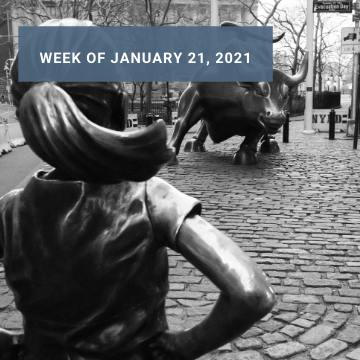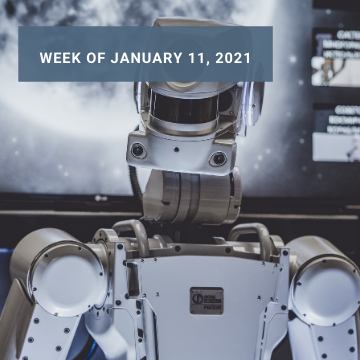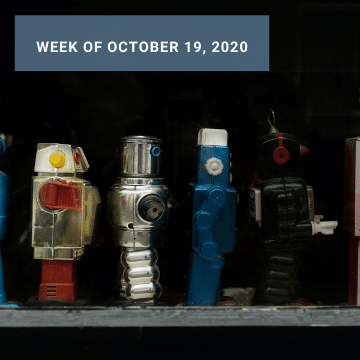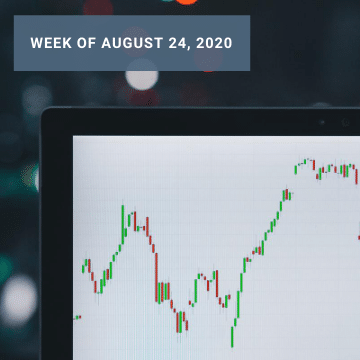Edna’s Garden: An 8-year-old girl with a passion for nature will turn the world upside down with her data experiments
Edna’s Garden, a story by Miquel Morales.
Discover our last story: Nadia
Edna’s Garden – Chapter 1
“Edna?” an old voice croaked from above. From beneath the pile of dead leaves she had fallen on, Edna could hear the man struggling to breathe. Wheezes and sudden bursts of dry cough formed a rhythmic pattern that spoke of one-too-many cigarette puffs while walking the dog. “For the love of Christ, Edna! Where are you? Where do you think you are going?” The man’s voice was full of urgency and rage, his British accent more noticeable than usual. Edna could not remember the last time she had seen him this mad. Maybe she simply had not.
“Edna!” In her leafy igloo, Edna could hear his steps coming down the hill as he fought his way through the dense vegetation. She held her breath. “Of all the days you could have lost your mind… It had to be today, ah? Of course it had to be today!” Just a few feet away from Edna’s face, a loose branch broke into a dozen pieces under the furious step of a muddy leather shoe. Edna held onto her precious cargo in a protective embrace. It was still warm, much like the pulsating heat that had started emanating from her ankle. She must have sprinkled it upon touching the ground. A stinging pain stabbed her leg in agreement. Great.
“I am losing my patience, little lady. Come out of wherever you are hiding. Now!” The man’s voice was now further away. It was clear that he had assumed that Edna was no longer there and was venturing deeper into the thicket. No, she would not come out! She was tired of all the stupid rules and impositions. And all because of Her. “One last time, lady! Do you want me to tell your father? Is that what you want?” No, he would not tell Dad. He never did. He loved her way too much to want her any harm. “I am going to count to three, Edna. And then, I am going to pick up my phone and call your father.” Nice try, buddy. “One…” Just a ruse. “Two… Picking up the phone, Edna!” “Peter, no!” Darn it.
Edna had just a few seconds to hide her hunting prize in one of the inner pockets of her navy blue trench coat before a hand started digging into the pile of leaves. An angry pair of tired eyes peeped through a hole in the leafy dome. There stood Peter Kahn, the family’s butler. He was soaked in sweat and covered with dirt. He was holding Edna’s Totoro backpack in one hand and a cellphone on the other.
More hurt, than angry, Edna stared back at the man with a defiant expression. “Where is it.” said the butler. “Where did you put it?” Nothing. He proceeded to unlock his phone. “I lost it while running, ok?” said Edna. “Are you happy now?” The man directed her a suspicious look. “Peter,” said Edna pointing at the swollen ankle. “I can’t walk.”
All things considered, Edna was having a great time. She was really trying to keep herself from smiling as passerby directed inquisitive and confused looks at the man dressed in dirty, eccentric butler clothes carrying in his arms a little girl with even dirtier clothes across Central Park on a Tuesday afternoon. She could have easily piggybacked her way through the park and made it a bit less awkward, but Peter was too much of a gentleman to allow that to happen.
Edna looked at the face of the sixty-year-old butler for a moment. His eyes were focused in the winding path ahead, his face as stoic as straight was his posture. He had not spoken a single word since discovering her under the leafage. Neither was Edna expecting him to do so. She knew that look very well after spending most of her life under the care of the man. He would briskly carry her all the way across the park until reaching The Pond, where he would slow down so Edna could mentally annotate the number of swimming ducks at the time and what they were doing.
It was her dad that had introduced her to nature when she was a little kid, before everything changed. She had been studying The Pond’s ecosystem for over a year now. She had built a database and tracking computer program where she carefully registered all the data in hopes that one day her research might be of use to the cool scientists at the American Museum of Natural History. Over the months, the data she collected was enough to start building a model that simulated the little natural environment she so loved. And that was only the beginning.
But this time, Peter did not slow down. Trying to get a quick glimpse of the water over the butler’s shoulders, Edna considered for a moment dropping her precious cargo where it belonged. No. It was too vital to her project’s success.

The outlandish butler and his broken princess did not look any more fitting while crossing Grand Army Plaza. Peter even had to stop for a couple of minutes in order to explain to a concerned police officer that they were neither part of an anticapitalist street performance nor had they been involved in a limousine crash.
Edna felt sorry for Peter. The gallantry had always been there, but his new attire was simply too much. It did not use to be that way. Not until she broke into their lives and proclaimed that “elegance and taste had to be conquered one outfit at a time.” Peter, like most modern-day family butlers, used to wear what adults called “business casual” clothes.
Edna knew this from the few occasions in which she had been invited – and forced to go – to a classmate’s birthday party. She hated those kids. They were always talking about either cars or horses, summer houses and the coolest technological gadget of the season. It seemed as though their only goal in life was to copy the nearsighted lives of their parents, the superfluous, clean, organized and ultimately sombre lives of wealthy New Yorkers.
She thought for a moment of Tom Collins, that little spoiled brat. She could picture him at the school gates, leaving for home on his ridiculous hoverboard after making fun at the fact that Edna still had to be walked home by “the nanny.” She had heard those things could catch on fire. And she certainly hoped so.
Distant church bells chimed way too many times. They were pretty late. She would be furious, thought Edna with satisfaction. She had been planning this for weeks, yet another fake jewel on her crown of shiny ego.
It all started when Dad announced over dinner that he had decided to invest some money in the new restaurant of a famous art critic he recently met at a fundraising event. The guy’s name was Jeremy Talbot, and, apparently, he was as enthusiastic as Dad about saving the endangered populations of North Pacific short-tailed albatross. “So, how short is its tail compared to that of a normal albatross?” had jumped an excited Edna when her dad mentioned that fact.
But, before she could ask more about that majestic-yet-not-too-majestic-sounding bird, Bianca Salazar – Her – had come up with the brilliant idea. “That’s it, darling. We are having a dinner party!” For a moment, Edna had thought the veins on the woman’s neck would burst out of pure elation. Of course – She had been desperately waiting for such an occasion. Bianca Salazar was tall, thin and evil; her beauty extraordinary enough to make everyone else oblivious to the latter.
She had shown up at their 57th Street penthouse three years after Mom’s death. Edna was only one year old when her mother finally succumbed to the cancer. It was impossible for Edna to recall a single thing about her. She simply had this feeling, a foggy impression of having had a mother a long time ago. Somehow, she knew she came from somewhere – or rather from someone – as opposed to just having been summoned into this world by pure chance. That was definitely what it felt like with her.
Bianca Salazar had simply come along with fake smiles and pretended she had always been there. It did not work that well with Edna. She would not go as far as calling it hate at first sight – Edna was simply too young in the beginning to understand what was going on. It had been more of an awakening. By the age of four, Edna reckoned, she had had enough interactions with well-meaning human beings to recognize one without a soul when she saw it.
Dad was probably the golden standard when it came to evaluating a person’s qualities. He had taught Edna everything cool she knew or cared about, from zoology and astronomy to The Beatles and good adventure stories – The NeverEnding Story was one of her favourites.
Then there was Peter, of course. He had taught her substantially different things, the kind of things Edna wished no one cared about: how to properly eat at the table, how a lady should introduce herself to a stranger, the list of words she was not supposed to use. Well, no – That was unfair.
With her father travelling so much and the witch being, well, a witch, Peter provided Edna and her siblings with the valuable concepts of reliability and selfless generosity.
Edna looked at the butler’s face as they crossed Fifth Avenue on a red light. Peter was an honourable man. The most honourable. Edna wished they had known each other as kids. They would have been really good friends.
To be continued…
Read the next chapter of Edna’s Garden: Edna’s Garden – Chapter 2
Need tips on how to find a job in IT? Check out our IT job hunting guide.



















